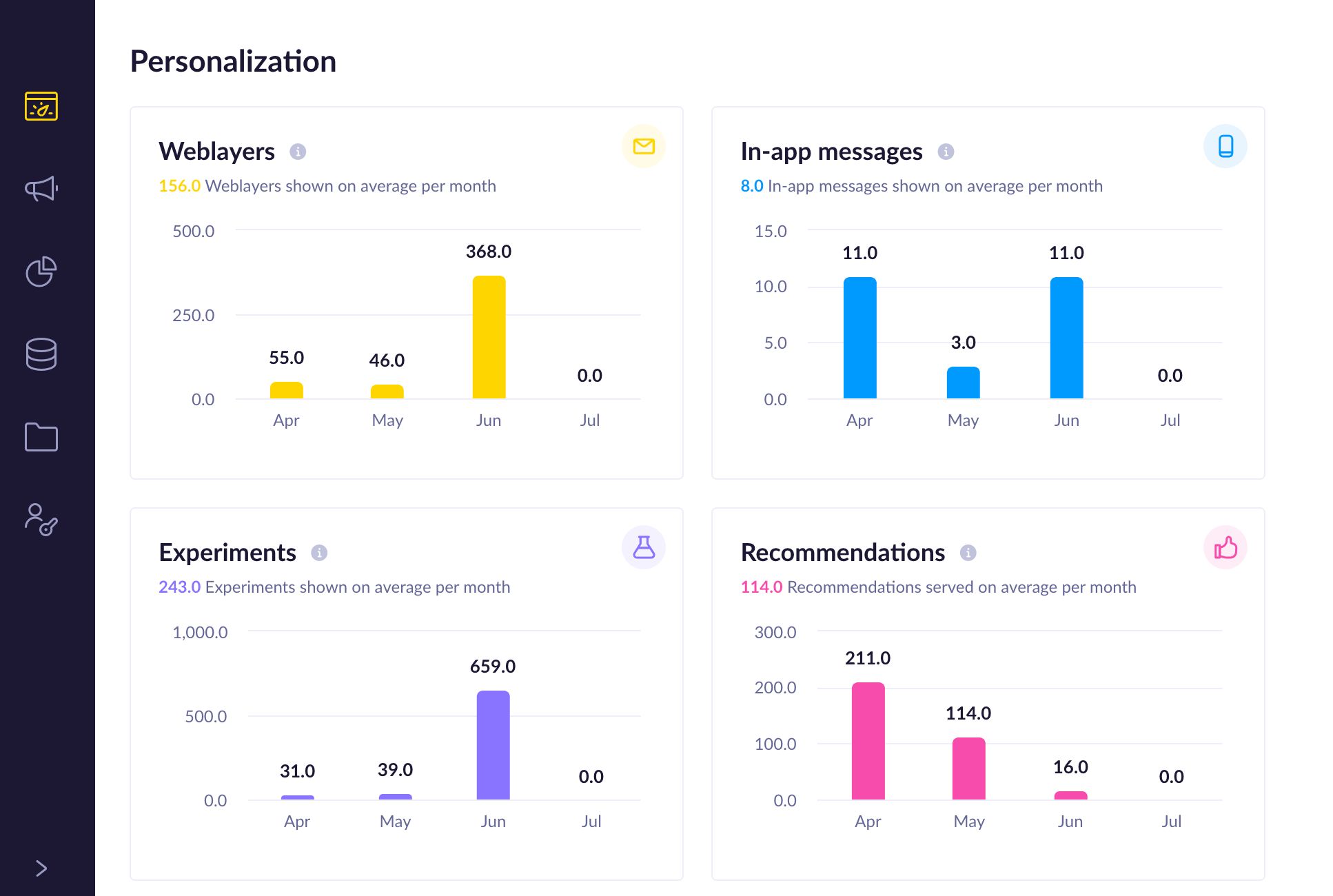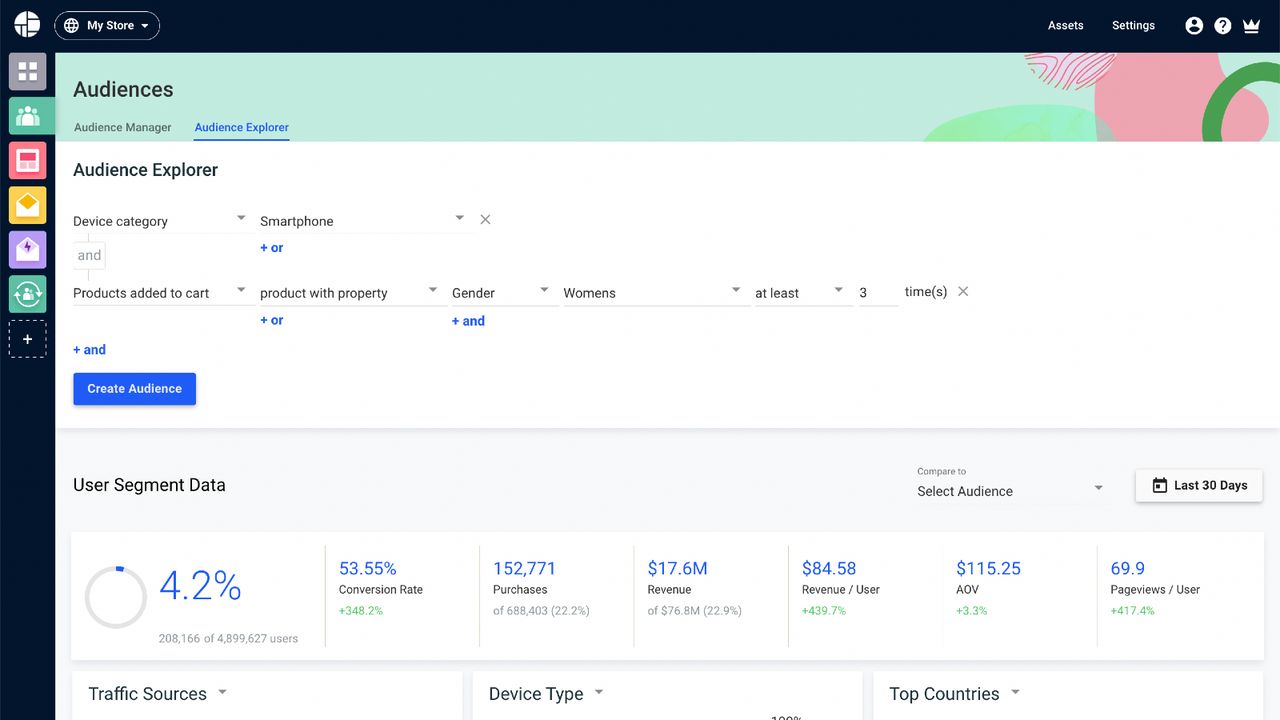Alternatives to Airship
1. Adobe Target
+Pros
- Deep Adobe Experience Cloud integration
- AI-powered personalization capabilities
- Omnichannel delivery spanning web, mobile, email, and IoT channels
-Cons
- Implementation complexity requiring 6-12 month timelines
- Substantial cross-functional team coordination
- Vendor lock-in risks due to proprietary data schemas
One highlighted feature and why it's amazing
Algorithmic experience selection for personalized user experiences.

Another highlighted feature of why it’s amazing
Dynamic content matching for next-hit personalization by processing real-time session data.
2. Bloomreach Experience
+Pros
- Commerce-Specific AI Excellence through Loomi AI's agentic approach delivers measurable business results that generic platforms cannot match .
- Proven ROI Validation through Forrester's independent study calculating 251% ROI and $6.72 million net present value provides credible evidence of business value .
- Unified Data Architecture eliminates integration complexity by combining CDP, marketing automation, and merchandising within a single platform .
-Cons
- Implementation Complexity creates barriers for organizations lacking dedicated technical resources .
- Pricing Transparency Issues through the quote-based model complicate competitive evaluation and budget planning .
- Dashboard Complexity Concerns reported by users indicate that advanced capabilities may require extensive training to utilize effectively .
One highlighted feature and why it's amazing
Employs an agentic approach that predicts customer intent and initiates proactive conversations rather than simply responding to customer actions .

Another highlighted feature of why it’s amazing
Combines CDP, marketing automation, and merchandising capabilities within a single architecture, eliminating data silos that typically plague multi-vendor implementations .
3. Dynamic Yield by Mastercard
+Pros
- Unique Mastercard data integration capabilities for predictive targeting
- Cross-channel personalization synchronization with unified rule management
- Enterprise-grade technical architecture with sophisticated AI personalization capabilities
-Cons
- Implementation complexity requiring substantial technical resources
- Cost barriers with minimum monthly commitments starting at $13,000
- Mixed support quality feedback indicating potential service delivery challenges
One highlighted feature and why it's amazing
Integrates real-time behavioral analysis with predictive targeting through proprietary machine learning algorithms that process user interactions to generate individualized content recommendations, layout optimizations, and contextual messaging across multiple digital touchpoints.

Another highlighted feature of why it’s amazing
Leverages Mastercard's aggregated consumer spending data to enable predictive targeting of anonymous users through zip-code-level spending patterns.
Other Alternatives
Justuno
MoEngage
Monetate Personalization Platform
Optimizely Digital Experience Platform
How We Researched This Guide
About This Guide: This comprehensive analysis is based on extensive competitive intelligence and real-world implementation data from leading AI vendors. StayModern updates this guide quarterly to reflect market developments and vendor performance changes.
236+ verified sources per analysis including official documentation, customer reviews, analyst reports, and industry publications.
- • Vendor documentation & whitepapers
- • Customer testimonials & case studies
- • Third-party analyst assessments
- • Industry benchmarking reports
Standardized assessment framework across 8 key dimensions for objective comparison.
- • Technology capabilities & architecture
- • Market position & customer evidence
- • Implementation experience & support
- • Pricing value & competitive position
Research is refreshed every 90 days to capture market changes and new vendor capabilities.
- • New product releases & features
- • Market positioning changes
- • Customer feedback integration
- • Competitive landscape shifts
Every claim is source-linked with direct citations to original materials for verification.
- • Clickable citation links
- • Original source attribution
- • Date stamps for currency
- • Quality score validation
Analysis follows systematic research protocols with consistent evaluation frameworks.
- • Standardized assessment criteria
- • Multi-source verification process
- • Consistent evaluation methodology
- • Quality assurance protocols
Buyer-focused analysis with transparent methodology and factual accuracy commitment.
- • Objective comparative analysis
- • Transparent research methodology
- • Factual accuracy commitment
- • Continuous quality improvement
Quality Commitment: If you find any inaccuracies in our analysis on this page, please contact us at research@staymodern.ai. We're committed to maintaining the highest standards of research integrity and will investigate and correct any issues promptly.